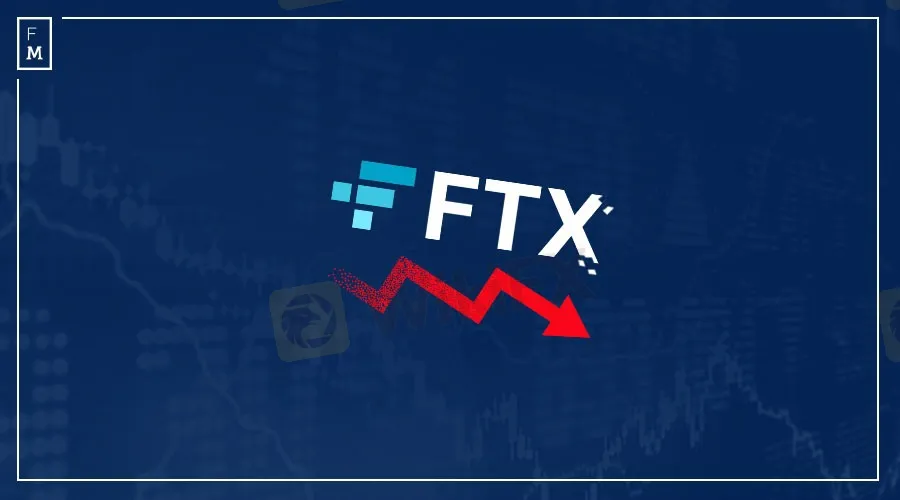Abstract:FTX on the brink of collapse despite generating over $1bn in revenue last year.
Rival Binance offered and then pulled out of acquiring FTX in a whirlwind two days

FTX was considered (even a couple of days ago) as one of the more reputable and trusted cryptocurrency exchanges. Its Founder and CEO, Sam Bankman-Fried, a former Wall Street quant trader who also owns Alameda Research, is a crypto billionaire and a vocal personality.
Take Advantage of the Biggest Financial Event in London. This year we have expanded to new verticals in Online Trading, Fintech, Digital Assets, Blockchain, and Payments.
The exchange was established in 2019 and initially offered trading services with altcoin derivatives contracts, which could not be found at other reputed crypto venues (derivatives contracts of popular cryptos like Bitcoin and Ether were only popular then). FTX eventually expanded into other areas and now even offers spot trading.
FTX: The Rise
The growth of the crypto exchange in a short time was also impressive. FTX, being a privately held company, is not required to reveal its financials. However, CNBC (based on leaked internal documents) reported that the exchange generated $1.02 billion in revenue last year, jumping from only $89 million in 2020. That was a year-over-year growth of over 1,000 percent. Further, it brought in $270 million in revenue in the first quarter of 2022, with expectations of around $1.1 billion over the entire year.
On top of that, the Bahamas-headquartered exchange was profitable, with an operating income of $272 million in 2021. The net income of the exchange jumped from $17 million in 2020 to $388 million last year.
Bankman-Fried, with a billion-dollar purse, even showed his generosity (or merely opportunistic) to the crypto industry and bailed out several troubled companies in recent months. Voyager's lawyers called in an offer of FTX and Alameda a “low-ball bid dressed up as a white knight rescue” before selling assets to the US affiliate of FTX.
However, things have reversed as FTX needs to be bailed out. On Tuesday, Bankman-Fried and Binance's Founder and CEO, Changpeng Zhao, revealed that Binance is fully acquiring FTX, and the two have signed a non-binding letter of intent. However, it dropped like a shock in the industry. That deal is now off the table (details later).
The Fall Begins: What Went Wrong?
The troubles of FTX started over the weekend when Zhao confirmed Binance's decision to offload its holdings of FTX's native FTT tokens, raising concerns over its rival's financial stability. Binance received those FTT tokens when it sold its FTX stake.

Though Zhao did not specify, his decision might have been alarmed by a Coindesk report that revealed the balance sheet of Alameda Research, Bankman-Fried's trading firm. Alameda held $14.6 billion in assets by the end of last June: $3.66 billion of that, the largest asset entry, was held in 'unlocked FTT', and another $2.16 billion, the third largest held assets, was in 'FTT collateral'.
In the $8 billion liability side of Alameda, the balance sheet held $292 million of 'locked FTT'.
According to the FTX website, around 197 million FTT tokens worth $5.1 billion (market value at the time of Coindesk's report) were in circulation. Alameda holds the majority of that.
So, what is the problem? FTX, BankMan-Fried's cryptocurrency exchange, issues FTT tokens. The only utility of the token is, that it provides discounts on trading fees on its marketplace. Though there is no evidence of wrongdoing, holding such an amount of crypto exchange tokens in the balance sheet can raise a red flag.
Furthermore, the shared owner and closeness between FTX and Alameda worsen the situation. It even hints at a flywheel scheme.
With a flywheel scheme, a company issues a crypto token and pumps its price. It makes the balance sheet green, and the company can show paper profits to investors and raise money or loans. However, there is no evidence to suggest that Bankman-Fried's companies pulled off such a stunt.
Responding to Binance's decision to liquidate FTT tokens, Bankman-Fried said that the “competitor is trying to go after us with false rumours.”
FTX Folded
When the crypto industry was already talking about FTX's troubles, Bankman-Fried and Zhao announced Binance's decision to acquire its rival Binance. They did not specify any terms but clarified the US entity of FTX is not included in the deal.
The deal's fate now depends on full due diligence of FTX that will be conducted by Binance 'in the coming days'.

Zhao elaborated that his offer came to “help cover the liquidity crunch” of FTX. Bankman-Fried also noted that he sought Binance's help to clear out all of FTX's “liquidity crunches” and cover all assets 1:1.

Bankman-Fried stressed that all FTX “customers are protected” and the exchange does not “invest client assets.” Though several FTX users encountered withdrawal problems, the exchange revealed issues with its technology infrastructure and bank holidays that impacted the withdrawal speed.

The latest report by Reuters outlined that Bankman-Fried transferred at least $4 billion of FTX funds, secured by assets including FTT and Robinhood shares, to Alameda. A portion of these funds is reportedly customer deposits.
Now, both the US SEC and the Department of Justice are investigating the activities of FTX.
“The issue seems to have been caused by the fact that FTX over-extended themselves, and as they were exposed to the FTT token when that fell it caused a 'run on the bank,'” Gold-i's and Crypto Switch's Founder and CEO, Tom Higgins, told Finance Magnates.
The Deal Is Off
On Wednesday Binance dropped another bomb, confirming that it is backing out from acquiring FTX. Zhao's exchange cited reports about the mishandling of customer funds by FTX and the US regulatory investigation against the troubled crypto firm behind the decision.

Before backing out from the deal, Zhao also publicly posted a screenshot of an email he sent to Binance employees. That email detailed that Bankman-Fried opted for Zhao's help abruptly. Despite being a competitor, he highlighted that the current situation of FTX is bad for the entire crypto industry.
The Reaction: How Has This Impacted the Industry?
The near-collapse of FTX directly impacted the market price of FTT. The token's value started to plunge after Zhao's initial decision to offload it, and the situation increasingly got worse with the subsequent announcement of the acquisition.
The exchange token's value has depleted by more than 70 percent in the past few days. It now has a market capitalization of $1.6 billion compared to more than $5.1 billion last week.

It also created chaos in the entire cryptocurrency industry. Companies are coming out to ensure their safeguards against the situation. Japan's Monex, which owns the crypto exchanges, Coincheck and TradeStation, said it has “no position or exposure with respect to FTT, FTX, or Alameda Research.”
Coinbase's Chief Financial Officer, Alesia Haas, wrote in a blog post that the American exchange only has “$15 million worth of deposits on FTX to facilitate business operations and client trades.”
“Regardless of whether the Binance/FTX transaction completes, we have very little exposure to FTX, and we have no exposure to its token, FTT,” Haas added. “We have no exposure to Alameda Research, and we have no loans to FTX.”
In addition, Kraken confirmed that it holds about 9,000 FTT tokens on the FTX exchange, but “have not listed the FTT token on our spot or futures exchanges, and Kraken is not affected by the recent FTX news in any material way.” Stablecoin issuer Tether also confirmed no exposure of it to FTX or Alamada.
American commission-free broker Robinhood, a 7.6 percent stake of which is owned by Bankman-Fried, also joined the pack to confirm no direct exposure to FTX. “Despite SBF having an equity stake in Robinhood, we have no direct exposure to Alameda, FTX, or any of its entities,” Robinhood's CEO, Vlad Tenev tweeted.
However, there are many companies that have significant exposure to this troubled cryptocurrency giant. Mike Novogratz's Galaxy Digital disclosed a $76.8 million exposure to FTX and is now looking to cut it by 62 percent. Further, US-based Multicoin Capital is one of the most exposed crypto venture funds to FTX as 10 percent of its assets under management is stuck with the crypto exchange.
Some of the other major investors of FTX include Softbank, Temasek Holdings, Tiger Global, Paradigm and even Japanese tennis star Naomi Osaka, according to Crunchbase. However, none of them, at the time of publishing, have issued any statement on the situation.

Sequoia Capital, along with a sister fund, even marked its more than $210 million into FTX and its US affiliate, FTX.US to zero. In a justification letter to the investors, the venture capital even highlighted that it direct $150 million investment into FTX is only 3 percent of “of the committed capital of the fund.”

Apart from FTT token holders and investors, the downfall of FTX is impacting the blockchain project, Solana. FTX supported the project from the beginning; even a majority of cryptocurrencies, other than FTT, held in the asset side of Alameda's balance sheet included $292 million of 'unlocked SOL', $863 million of 'locked SOL', and $41 million of 'SOL collateral'.
As such, the market value of Solana has plummeted drastically, over 63 percent since the weekend.

“Perhaps more important right now is what this billionaire spat could mean for the rest of the cryptocurrency industry. Solanas SOL token is currently taking one of the biggest hits because FTX is a big supporter of the layer 1 blockchain and holds significant amount of SOL on its balance sheet that it may have to sell to shore itself up in the current bank run. If that happens, that could be bad news for the SOL token and possibly the industry at large,” said Marius Ciubotariu, core contributor to Solana-based Hubble Protocol and Kamino Finance.
An Industry-Wide Fallout?
The fallout of FTX now might raise questions on the legitimacy of other privately-held crypto exchanges. And, except for a handful like Coinbase, all crypto exchanges are private entities and often run operations from offshore bases.
“We live in reality where the founder can promise or confirm something (I am referring to a tweet of Sam on the 7th), and delete it, pretending it was never there,” Exmo's Chief Business Development Officer, Maria Stankevich said. “Nevertheless, I am sure that one such case will not bring a complete shade onto the whole market – and all the market players shouldnt be evaluated in the same way.”
Further, several regulated companies entered the crypto industry. These are traditional financial services companies and only extended their services to crypto. One such firm is Swissquote, which is licensed as a Swiss bank and recently launched a crypto exchange.
Despite the excessive withdrawal requests on FTX, Swissquote did not see an increased flow of Bitcoin or Ether over the last few days. However, it is to be noted that FTX is not processing withdrawals for most of its clients.
“Its important to consider what this event tells us about the crypto market. Pure crypto players, even the biggest and most respected, are vulnerable,” Swissquote's Chief Sales and Marketing Officer, Jan De Schepper told Finance Magnates.
“The big difference with traditional finance is that the big crypto players are highly correlated between them and all ultimately dependent on a single factor – the attractively and trust in Bitcoin. We see the concentration process as an opportunity to strengthen our position and to win market share. We continue to invest in our custody, trading and staking solutions.”
Will the Sports Industry Take a Hit?
Even if the crypto industry remains immune to the situation of FTX, the fate of several high-profile sports deals will be at stake if the exchange collapses or even finds a buyer.
FTX, in the last couple of years, has inked many sports deals. It spends around £100 million a year on its sport sponsorship deals, making it one of the largest marketing spenders in the crypto industry. Some of the high-profile FTX sports deals are:
Purchasing of naming rights of the Miami Heat's home arena last year for the next 19 years in a $135 million contract.
Becoming the naming rights sponsor of UFC for ten years in a $17.5 million deal.
Long-term patch partner of MLB umpires' uniform that commenced in 2021.
Sponsorship deal with Formula 1 racing team Mercedes-AMG Petronas.
Marketing deals with Buccaneers quarterback Tom Brady, Angels ace/slugger Shohei Ohtani and Golden State Warriors star Steph Curry.
Despite (or because of) all the chaos, neither FTX nor any of its sports partners have yet to comment on the sports deals.
Now, if FTX fails to find a buyer and goes into administration, it will be an “immediate headache of rebranding and unforeseen hassle of going out to the market to find a replacement,” explained Matt House, the CEO of SportQuake, an agency that has brokered a number of high-profile sports-sponsorship deals.
“There will be no immediate financial problem to rights owners if their payment terms for the current financial year were good (e.g. paid in advance) but they will have big problems if they weren't and are now out of pocket. Medium-term rights owners will need to scramble around and replace FTX. Most FTX sponsorship assets are blue-chip, so they will recoup in time, but in the short term it will be a hassle for sure.”
House added that the exclusion of FTX.US in the acquisition deal might bring more problems to US rights owners as a majority of FTX's deals are in the United States. Further, it will have an adverse effect on the overall cryptocurrency industry.
“If FTX can get into this mess then all rights owners with crypto deals spanning crypto exchanges to blockchain networks to NFTs will be asking for reassurances about their partners ability to meet their obligations,” House said. “This is a considerable headache for the sports industry with crypto-backed companies having in excess of 350 deals across 30+ sports to the value of $1bn+ per annum.”
Now What?
FTX needs cash. Period.
With the collapse of the Binance takeover, Bankman-Fried needs to find a new buyer or investor for his exchange. According to The Wall Street Journal, he told investors on Wednesday that the exchange needs to cover a shortfall of $8 billion due to excessive withdrawal requests. The exchange processed $4 billion and $6 billion worth of withdrawals on Sunday and Monday, respectively.
Bankman-Fried hoped to raise $3 billion to $4 billion in equity and some additional debt to save FTX, the report detailed citing anonymous sources.
But, now FTX is at a point when it is unable to settle withdrawals with the dropping value of its collateral.
“This just uncovered the ugly truth that no matter what is their back up (Sequoia, Alameda, etc) and who is auditing them, there are no guarantees that they are doing everything right. I would compare the current situation with the one that happened to Wirecard 2 years ago when EY kept confirming the liquidity that was no longer there,” Stankevich added.



















